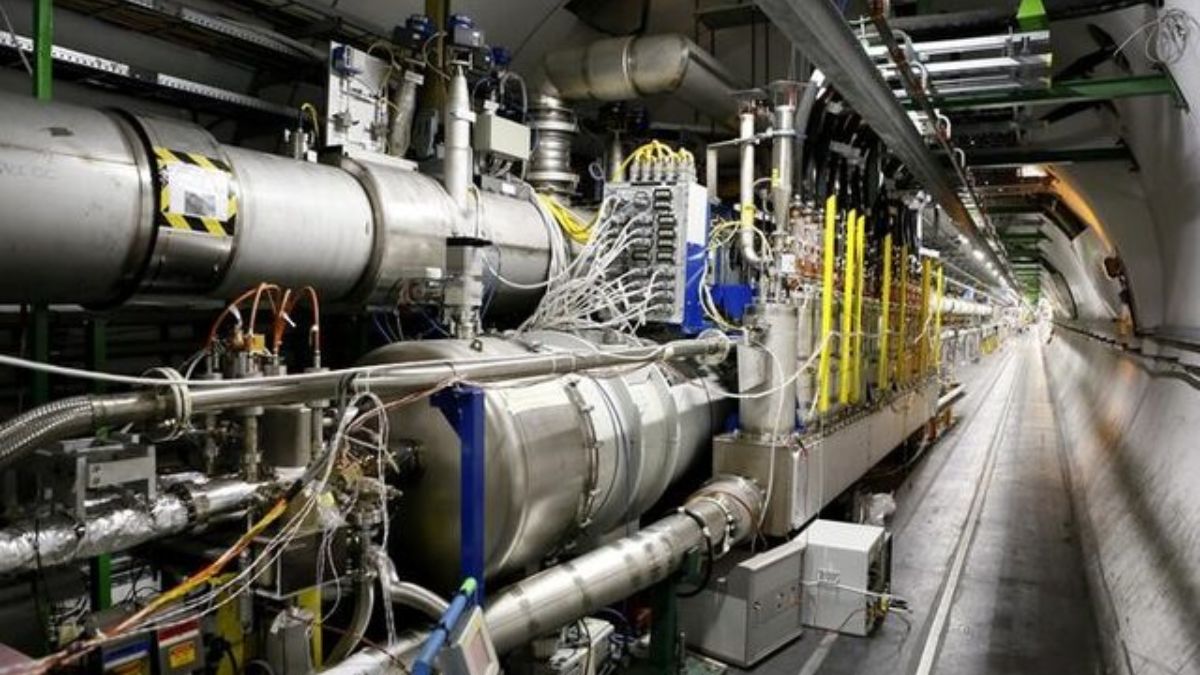Scientists flipped the switch for the first time on the Large Hadron Collider (LHC), the world’s largest particle accelerator, at a lab in Geneva on September 10, 2008. This is often considered to be history’s biggest science experiment.
If you are a history geek who loves to learn about important events from the past, Firstpost Explainers’ ongoing series, History Today will be your one-stop destination to explore key events.
France carried out its last execution by guillotine on this day in 1977, effectively bringing an end to the centuries-old practice that symbolised brutality. On this day in 1988, German tennis star Steffi Graf achieved one of the rarest feats in tennis history - completing the Grand Slam.
Here is all that happened on this day.
Large Hadron Collider went ‘live’
One of the biggest feats in the field of science took place on September 10, 2008, when scientists launched the world’s most powerful particle accelerator. The Large Hadron Collider (LHC) went live at Cern, the European Organization for Nuclear Research, near Switzerland’s Geneva.
The LHC, built over two decades with contributions from thousands of scientists and engineers worldwide, consists of a 27-kilometre ring of superconducting magnets buried underground. Its primary purpose is to smash protons together at near-light speeds, recreating conditions similar to those just moments after the Big Bang. By observing these collisions, scientists hoped to probe mysteries of matter, energy, and the very fabric of space-time.
The collider’s first live test on September 10 saw protons successfully circulate around the entire ring for the first time. While no collisions were carried out that day, the achievement was hailed as a historic milestone.
Among the LHC’s major goals were the search for the Higgs boson, understanding dark matter and dark energy, and exploring why matter dominates over antimatter in the universe. In 2012, the LHC famously delivered, its experiments confirmed the existence of the Higgs boson, sometimes called the “God particle,” validating a cornerstone of the Standard Model of particle physics.
The final guillotine execution in France
France carried out its last execution by guillotine on this day in 1977, marking the end of a long and controversial chapter in the nation’s history.
The condemned was 28-year-old Tunisian immigrant Hamida Djandoubi, who was convicted of kidnapping, torture, and murder. His execution at Marseille’s Baumettes Prison marked the final use of the guillotine in France, and indeed in Western Europe.
Impact Shorts
More ShortsThe guillotine, introduced during the French Revolution in 1792, was long considered a swift and egalitarian method of capital punishment. It became a stark emblem of revolutionary justice, used against both common criminals and prominent figures such as King Louis XVI and Marie Antoinette. By the 20th century, however, its role had become increasingly controversial, clashing with modern ideals of human rights and dignity.
Djandoubi’s execution came at a time when capital punishment was still hotly debated in France. Supporters argued it was necessary for deterrence, while opponents saw it as barbaric and incompatible with democratic values. Public executions had already been banned in 1939, but the secrecy of prison executions did little to soften criticism.
Steffi Graf completed the Grand Slam
German tennis star Steffi Graf became the third woman in the history of tennis to complete the Grand Slam after winning the US Open in 1988.
At just 19 years old, Graf entered 1988 already ranked world number one, displaying a dominance that would define her career. She began the year by winning the Australian Open, followed by a commanding performance at the French Open, where she famously defeated Natasha Zvereva in the final, losing only one game. At Wimbledon, she overcame defending champion Martina Navratilova, showcasing her adaptability on grass courts.
The final step came at the US Open, where Graf defeated Gabriela Sabatini in straight sets, securing her place as the youngest player ever to complete a calendar-year Grand Slam. She became only the third woman in history, after Maureen Connolly (1953) and Margaret Court (1970), to achieve the distinction.
But Graf’s triumph in 1988 went even further as later that year, she also won the Olympic gold medal in Seoul, completing what is known as the “Golden Slam”. This feat remained unmatched till 2012 when Serena Williams won a golden slam.
This Day, That Year
In 1974, Guinea-Bissau gained independence from Portugal.
Austria and the Allied powers signed the Treaty of Saint-Germain, concluding World War I in 1919.
US naval forces defeated the British in the Battle of Lake Erie during the War of 1812.


)

)
)
)
)
)
)
)
)



